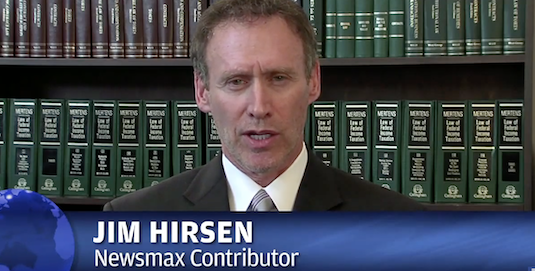Like the Media Research Center, Newsmax columnist James Hirsen hyped the right-wing songs of the summer. He gushed over Jason Aldean’s “Try That In A Small Town” in his July 24 column:
Jason Aldean is a superstar country music singer, with 27 number one hits and several top-selling albums.
He recently released a song that threw him smack in the middle of the cancel culture battle.
Aldean’s recent single “Try That In a Small Town” came out in May 2023, but went with little mention in the non-music press.
Then in July the music video was released. That’s when the artist as well as the song came under heavy mainstream media and social media attack.
The video includes footage from the Summer of 2020, where flags were burned, cars were smashed, businesses were vandalized, police were abused, etc.
The left responded in what has become routine fashion, slapping a bigoted label on the art and the artist.
The tragic incidents of 2020 and the brutal crimes that continue to ravage major cities have been minimized and/or completely ignored by dominant left-leaning media outlets.
Aldean’s artistic inclusion of depictions of events seems to have really hit a nerve.
Hirsen let Aldean complain that “this song isn’t promoting violence as some have suggested” and that “There is not a single lyric in the song that references race or points to it” — but failed to disclose that the video includes footage of Aldean performing in front of a Southern courthouse notorious as the scene of a lynching of a black teenager in 1927. Hirsen noted that a concert crowd unsurprisingly cheered the song, adding:
Aldean’s small town is proving to be mighty big in a lot more ways than one.
The “USA! USA!” chants from the concert crowd were more than just a show of support for the country music artist.
They were a great big “Thank You!” to Jason Aldean from down-home hearts across America and globally.
Hirsen has previously written a 2022 column defending Aldean’s wife after she stated in an online video that “I’d really like to thank my parents for not changing my gender when I went through my tomboy phase,” cheering them for trying to bring “our unique and legendary all-American country music back.”
Hirsen followed that by hyping Oliver Anthony’s “Rich Men North of Richmond” in his Aug. 14 column:
Truths, especially those that have been suppressed, often have a way of emerging in the form of a song.
With one finger on an instrument and another on the pulse of a culture, a gifted songwriter is able to capture a moment, compose melody, and pen lyrics.
With the luck of the draw, the creation may even become a musical soundtrack for its times.
This just happened in the life of former factory worker and off-the-grid farmer Oliver Anthony.
He performed an original song for an audience comprised of his dogs.
The instant the video was uploaded to the web, Oliver’s world changed forever.
Just days ago the Virginia singer-songwriter was unknown to the general public. Now he has the number one song on iTunes. It’s called “Rich Men North of Richmond.”
[…]Reflecting the discontent with the present economic reality and the fallout from unjust governmental policies, Oliver goes on to sing, “Lord, it’s a damn shame what the world’s gotten to for people like me and people like you.”
One of the most compelling lines in the song points to the surreal nature of life these days, with the words, “Wish I could wake up and it not be true, but it is, oh it is. Living in the new world with an old soul.”
Hirsen again whined that the song was criticized by non-right-wingers:
Meanwhile, left-leaning media are trying to sully the song.
For example, Rolling Stone published a piece titled “Right-Wing Influencers Just Found Their Favorite New Country Song,” characterizing the tune as a “passionate screed against the state of the country.”
News bulletin: His song is music to the ears of millions of Americans whose voices have been suppressed and who have simply been suffering in silence.
8.4 million views and counting is the exclamation point, and a fine one at that.
Hirsen hasn’t written about the song since, so we don’t know how he feels about Anthony distancing himself from the right-wing activists trying to appropriate his song for their purposes and pointing out that it was written about the kind of out-of-touch Republican presidential candidates who touted his song at their first debate. He did, however, name-check both songs in his Aug. 23 column as evidence that “the silent unwoke majority sure seems to have found its voice.”
